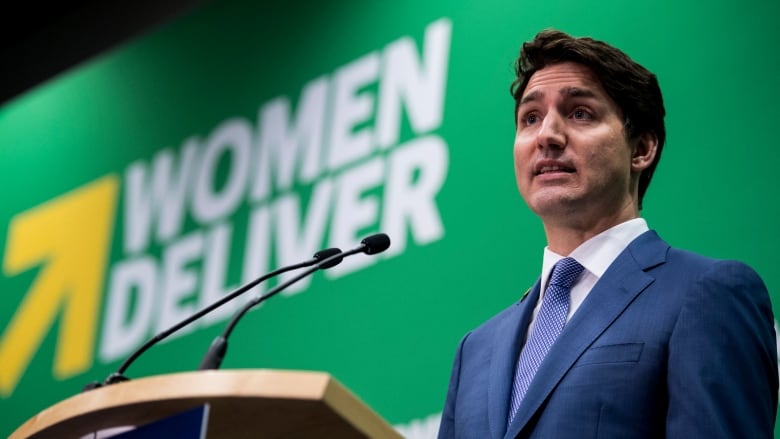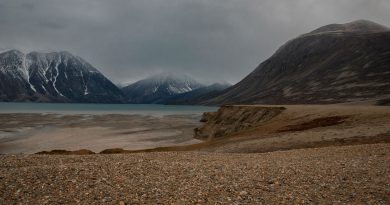Canadian PM says deaths and disappearances of Indigenous women and girls amount to ‘genocide’

Canadian Prime Minister Justin Trudeau says his government accepts that the murders and disappearances of Indigenous women and girls across Canada in recent decades amount to an act of “genocide.”
The national inquiry into missing and murdered Indigenous women and girls found that Indigenous women and girls are 12 times more likely to be murdered or to go missing than members of any other demographic group in Canada — and 16 times more likely to be slain or to disappear than white women. The inquiry report described the deaths and disappearances as “genocide.”
Trudeau didn’t use the term during his speech at the inquiry’s closing ceremony on Monday — but took a step further today.
“We accept their findings, including that what happened amounts to genocide,” he told a crowd in Vancouver, Western Canada Tuesday.
“There are many debates ongoing around words and use of words. Our focus as a country, as leaders, as citizens must be on the steps we take to put an end to this situation.”
The 1,200 page report, delivered to the federal government in a nearly four-hour ceremony in Gatineau, Que. on Monday, included 231 recommendations for government, lawyers and police to address the levels of violence endured by Indigenous women and girls and 2SLGBTQQIA (two-spirit, lesbian, gay, bisexual, transgender, queer, questioning, intersex and asexual) people.
“This report is about deliberate race, identity and gender-based genocide,” said Marion Buller, chief commissioner of the inquiry, during Monday’s ceremony.
Trudeau’s comments before the Women Deliver conference today are a departure from his response the night before, when he attributed the “genocide” description to the report’s authors.
“The national inquiry formally presented their final report, in which they found that the tragic violence that Indigenous women and girls have experienced amounts to genocide,” he said Monday.
‘Is that an act of genocide? Is it?’
The use of “genocide” to describe the violence facing Indigenous women and girls has been debated heatedly since news of the report broke late last week.
Retired Lt.-Gen. Roméo Dallaire, who oversaw the 1994 UN mission in Rwanda, questioned the use of the word.
“Is that an act of genocide? Is it?” Dallaire said, adding he has “a problem” with how the inquiry used the word.
Human rights lawyer and former attorney general Irwin Cotler also suggested the inquiry’s use of the word was inappropriate.
“Perhaps they had to use a term like genocide in order to sound the alarm and people will take notice and finally action will result,” Cotler said Monday.
“But I think we have to guard against using that term in too many ways, because than it will cease to have the singular importance and horror that it warrants.”
With files from the CBC’s JP Tasker
Related stories from around the North:
Canada: Report on violence against Indigenous women a ‘wake-up call’ for Canada, says Pauktuutit president, Eye on the Arctic
Finland: Indigenous Sámi community weighs in on Finland’s truth and reconciliation process, Yle News
Norway: Inuit, Sami leading the way in Indigenous self-determination, study says, CBC News
Sweden: Report sheds light on Swedish minority’s historic mistreatment, Radio Sweden
United States: Alaska reckons with missing data on murdered Indigenous women, Alaska Public Media



